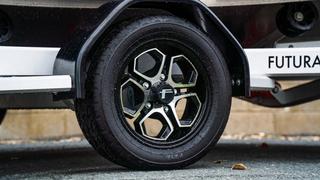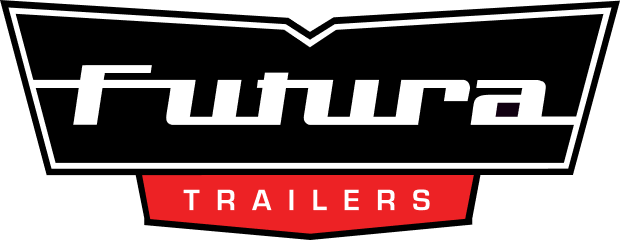How to Properly Torque and Maintain Trailer Wheel Lug Nuts
A simple how-to guide

Maintaining your trailer's wheels is crucial for safety and performance. One of the most common issues trailer owners face is lug nuts coming loose, which can lead to wheel loss and potentially dangerous situations.
Here’s a comprehensive guide on how to properly maintain and torque your trailer's lug nuts to ensure safe travels.

Steps to Properly Torque Lug Nuts
1. Gather Necessary Tools: You will need a torque wrench and the appropriate socket for your lug nuts. Avoid using air impact guns, as they can over-tighten and damage the threads.
2. Check Torque Specifications: Refer to your trailer's manual for specific torque specifications. These can vary based on wheel size, stud size, and material. For example, common torque settings are 90-120 ft-lbs for 1/2" studs and 120-140 ft-lbs for 9/16" studs.

3. Initial Tightening: Start by hand-tightening the lug nuts to prevent cross-threading.
4. Torque in Sequence: Use a star pattern to evenly distribute the load and ensure proper seating. Tighten each lug nut with the torque wrench until it clicks, indicating the correct torque has been reached. Follow the pattern until all lug nuts are properly torqued.
5. Re-check Torque: After these intervals, re-check and re-torque the lug nuts: 10 miles, 20 miles and 50 miles. This ensures they remain properly seated.

Understanding the Importance of Proper Torque
Lug nuts need to be torqued to specific specifications to ensure they hold the wheel securely to the hub. Incorrect torque can lead to loosening, cracking, or breaking of the lug nuts, which can cause the wheel to come off while driving. This not only endangers your safety but can also cause significant damage to your trailer and other vehicles on the road.
When to Torque Lug Nuts
After Installation: Always torque lug nuts after installing new wheels or after any wheel removal.
Initial Use: Check and re-torque after the first 10 miles, 20 miles, and 50 miles of use to ensure they are properly seated for long-term use.
Regular Maintenance: Make it a habit to check the torque of the lug nuts regularly, especially before long trips or after wheel removal.
Regular Maintenance Tips
Routine Checks: For frequently used trailers, check the lug nuts monthly. For less frequently used trailers, check every six months. Always check before long trips.
Inspect for Damage: Regularly inspect lug nuts and studs for signs of rust or damage. Rust can create false torque readings, leading to improper tightening.
Replace Damaged Part: If you notice any damage, replace the lug nuts or studs immediately. Use a bolt puller or large clamp to remove damaged studs without harming the hub.
Preventing Common Issues
Avoid Over-tightening: Over-tightening can crush the wheel center, causing the wheel to flex and potentially break the studs.
Lubricate and Clean: Regularly clean and lubricate the studs and nuts to ensure accurate torque readings and prevent rust buildup.
Understanding Wheel Loss and Stud Breakage
When a wheel comes off, it often snaps some or all of the wheel studs, giving the impression that the snapped studs were the cause of the lost wheel.
In reality, the chain of events typically begins with the wheel coming loose, which then causes the studs to snap. This underscores the importance of ensuring that lug nuts are properly torqued and regularly checked.
If your trailer wheel has centre caps - you'll need to ensure the centre cap of the wheel does not interfere with the fitment of the wheel to the hub.
Below are examples of the correct vs incorrectly aligned Futura Trailer wheel centre caps (the plastic tabs need to be aligned with the metal grooves)

Correct ✅

Incorrect ❌
By following these guidelines, you can maintain the integrity of your trailer's wheels and ensure a safe journey.
Regular maintenance and proper torque of lug nuts are essential practices for any trailer owner. Keep your travels smooth and secure by adhering to these best practices.
Other Resources
Loading articles
